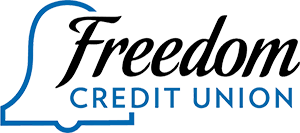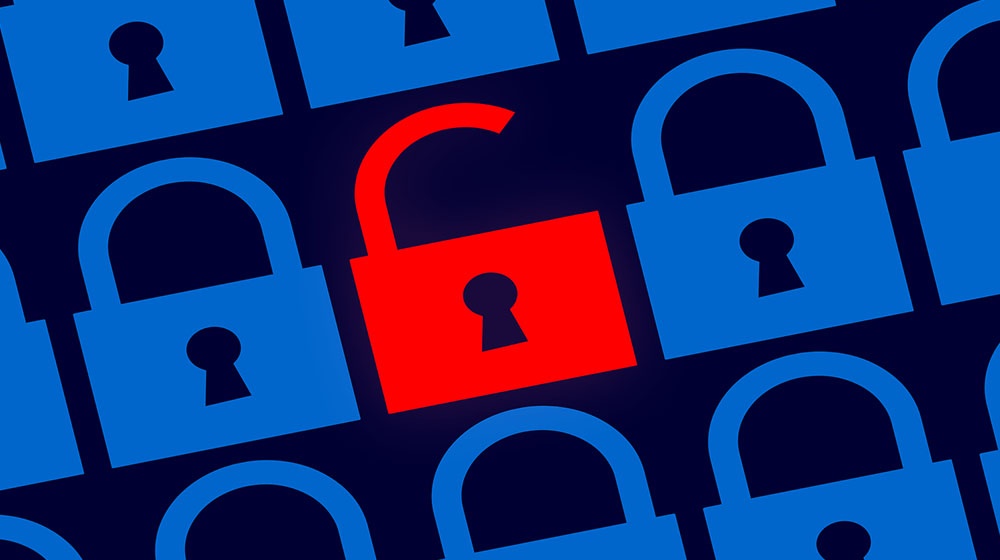It’s no secret that in this digital age, cybersecurity is a tremendous concern. Unfortunately, there is no foolproof way to protect all the data we share online. As soon as new security measures are enacted, hackers and scammers are hard at work to try to break them.
Sadly, criminal activity has even increased during the pandemic with fraudulent phishing scams, charitable giving requests, elder fraud and check and loan fraud. Criminal and fraudulent activity never takes a break…. and neither can we when it comes to protecting members and Freedom Credit Union!
Here’s What We’ve Been Seeing
- We’ve had unemployment payments coming into member’s accounts, many from out of the area and in someone else’s name. When members are asked why they have received the deposits and if they know the individual named, many have said they have met someone online and the deposit is for that person’s uncle, aunt, father, brother or other individual. They are often instructed to send the money back to the acquaintance or another party using a cash app.
- We have also had members become victims of lottery or prize scams. Members will receive notification that they have won a lot of money or a fantastic prize in a competition, lottery or sweepstake that they don’t remember entering. The scammer may try to get the member to provide them with a bank account number to deposit the winnings into, which they will then clean out. Another trick is to send the member a bogus “check” and ask them to send money back to cover expenses.
- Unfortunately, small businesses are also being targeted at a time they are most vulnerable and trying to run their business. Phishing attacks and scams are utilizing the Small Business Administration (SBA) logo initiating an application for federal aid. These may be attempts to obtain personally identifiable information (PII), to acquire personal banking access, or to install ransomware or malware on the business’s computer.
Take Steps to Protect Yourself
There are cybersecurity steps you can and should take to protect your identity and finances. If you help an elderly friend or family member, you should also work with them on these protective actions, since they are targeted even more frequently.
The number one thing to remember is to never give out your personal information, account numbers, passwords, online banking credentials, mobile banking credentials or debit card number with pin. If you provide someone with your credentials and they use them to commit fraud, you are likely going to be held responsible.
Other steps to take include:
- Do not provide personal data and information in response to email requests, even if they look like they come from a company you know. These emails are often designed to look like they come from a place you might trust, such as your bank, or even major organizations like the Centers for Disease Control (CDC) in the case of some recent scams. Rather than click on links in the email, go to the company’s official website or call the number on the company’s website to verify the legitimacy of the request.
- Research charities online, and don’t provide your financial and personal information via phone or online. Elders are often targeted with email or phone requests from bogus non-profit and religious organizations.
- Monitor your accounts, including credit, debit and bank statements. If anything looks suspicious, question it immediately, as you may be responsible for fraudulent activity if you don’t report it promptly.
- Change your passwords regularly. We know it’s hard to keep track of multiple passwords, especially if you change them frequently, but it’s a good practice to ensure security. Apply greater security levels to your most sensitive accounts.
- Remember that if you didn’t enter a contest, you didn’t win. No real lottery tells winners to put up their own money in order to collect a prize. Never deposit a check you may have received without verifying it. You will be on the hook for spending any money that came from a fraudulent check.
- For Small Businesses, if anyone asks for money to be able to process an SBA loan for your business, they are not legitimate. Nor are any emails about SBA loans coming from sites not ending with “.gov.” Also, the SBA does not reach out to anyone to initiate a loan. If you have any doubt, reach out to your nearest SBA office to ask if they initiated the information-exchange.
We’ve Got Your Back
Criminal and fraudulent activity never takes a break, and neither can we when it comes to protecting our members and Freedom Credit Union. We will never send an email or leave voicemail messages on your mobile or home telephone requesting that you reply to an email or call to update or verify financial account information.
If you have questions about transactions, emails, messages or checks you receive, contact us at 413-739-6961 or toll free at 800-821-0160. You can also check our Security Center regularly for fraud alerts and scam notices as we try to keep you one step ahead.

